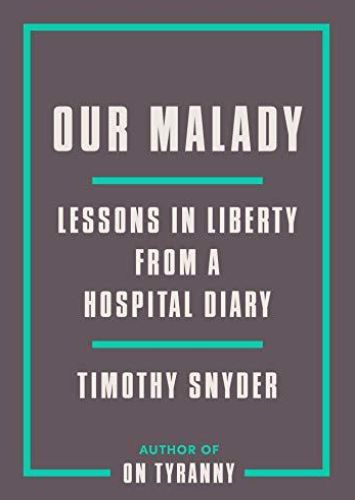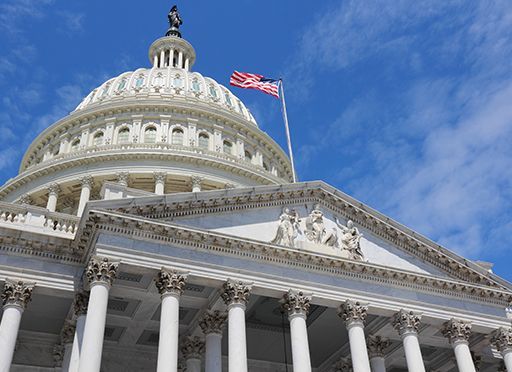Noted historian Timothy Snyder details the dysfunction of the American health care system and proposes workable solutions.

Stop the Madness
Yale professor Timothy Snyder – author of the landmark, multiple-award-winning Bloodlands – recognizes that most Americans know their health care system doesn’t work. Even for the insured, health care proves inefficient, unequal and prohibitively expensive. The problem is so complex and seemingly intractable that many Americans simply live with the wrenching status quo.
Snyder wrote this eloquent exploration after experiencing a life-threatening illness. He argues a moral case for health care reform – which he regards as lying at the heart of liberty and democracy – and offers a compelling explanation for the need and potential for change.
Profits over Human Rights
Snyder offers numerous examples of how the United States suffers from inequalities in health care. Americans’ lives depend on their social status: US life expectancy has declined since 2015. Black American women suffer a higher childbirth mortality rate than women in some low-income countries. Well-connected or wealthy patients receive special treatment.
The reason for this inequity: A private health care system run by insurance providers and hospitals that prioritize profits. Americans must demand health care as a human right. An equitable, democratic system works well for all patients, regardless of status; an unequal system hurts everyone.
To be free is to become ourselves, to move through the world following our values and desires.Timothy Snyder
Snyder posits that a badly designed health care system is no less pernicious than totalitarian policies. Nazi Germany and the Stalinist Soviet Union, for example, used health status to generate divisions between the healthy and the sick, and to separate humans from those regarded as subhuman.
Social Fragmentation
America’s unequal care reflects a rise in wealth inequality and a widening gap between the concepts of self and solidarity. Americans have internalized the notion that suffering is a personal responsibility, Snyder writes. They stay silent about pain, addiction and the maladies that self-isolation brings, such as, for example, depression and other mental health issues.
When we are in pain, or when we are anxious about illness to come, rulers seize upon our suffering, lie to us and strip away our other freedoms.Timothy Snyder
Politicians leverage this unfair system and American resentment about suffering for their own cynical purposes. Rather than dismiss poor health outcomes and the environment that produces them as God’s will or an inevitability, Americans must start asking tough questions and demanding answers.
Children
Snyder notes that, because money dictates care decisions in the United States, doctors advise pregnant women to delay coming to the hospital so that they won’t occupy a bed for too long. This results in worse health outcomes for mothers and newborns.
It does no honor to the idea that ‘all men are created equal’ to mandate an unequal start to life. Timothy Snyder
Parental leave options in the United States are famously more restrictive than in other high-income nations. Other countries accept that raising a child is a collective social responsibility. For all people, but especially for children, freedom calls for communal solidarity. Snyder makes an eloquent argument that feeling secure – rather than competing with others for scant resources – is true freedom.
Freedom is thus a loan paid out and paid back over generations. Timothy Snyder
The United States can improve its children’s freedom if mothers remain at least four days in maternity wards after giving birth – to recover physically and to learn to breastfeed and handle other aspects of newborn care. Parents need maternity and paternity leave, and families should have high-quality, affordable and accessible public child care.
Knowledge and Truth
Corrupt politicians and a money-driven political system that prioritizes private equity firms, insurance companies and other intermediaries over high-quality care undermine American democracy, Snyder argues.
Truth is like health: we miss it when it fades.Timothy Snyder
The country faces a shrinking media landscape that seldom holds leaders accountable to the truth. Technology and the internet cannot act as substitutes for good governance; they drive poor health outcomes by encouraging sedentary lifestyles. Americans must embrace the value of the truth and the institutions that support it.
Intermediaries
Snyder hones in on the fact that health care facilities often assign multiple doctors to a single case, preventing physicians from spending sufficient time with each patient. A deadly disconnect exists between testing, checklists and algorithms, and doctor/patient consultations, which are the bedrock of accurate treatment. Under the current system, medical professionals have limited power. Hospital administrators, insurance companies, the pharmaceutical industry, and the concerns of private capital and commercial medicine direct and constrain physicians and nurses.
What doctors know becomes harder and harder to hear, until at last it is crowded out by what makes money.Timothy Snyder
Hospitals have incentives to discharge patients whose cases do not bring in sufficient revenue, and insurance companies have an incentive not to pay.
Doctors
Doctors join professional groups to ease the burdens of paperwork and insurance. Private equity firms or hospitals acquire these groups, which congregate in population centers, leaving rural areas with few medical resources. Student debt drives physicians into high-paying specializations that create vacuums for patients seeking primary care. Lobbyists, public relations experts and others within the medical-industrial complex work hard to convince Americans that change is impossible.
When doctors are disempowered, we do not learn what we need to be healthy and free.Timothy Snyder
The United States must invest again in shared public values and treat health care as a human right. Converting to a single-payer system would improve care, lower expenses, justify its costs and reap astounding rewards.
Review
Timothy Snyder is among America’s most significant and accomplished historians. His usual topic is the vast sweep of history, political wrong turns and how demagogues – with the consent of at least some of their constituents – have slaughtered millions. He seldom espouses an overt ethical position, preferring to let the horrible facts make their own moral arguments.
So this text proves an extraordinary cry of outrage, an inspiring appeal for a return to communal morality as an antidote to murderous bureaucracy, greed and inequality. Snyder takes no political position; he espouses common sense by accurately describing a medical system run amok. Writing with his trademark eloquence and clarity, he calls on Americans to stand together against that madness.
Timothy Snyder also wrote Bloodlands, On Tyranny, The Road to Unfreedom, The Red Prince and Sketches from a Secret War.





